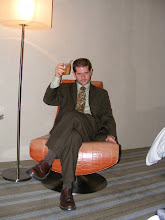For those of us who've attempted to quit the old coffin nails and are left wanting, there is hope on the horizon. Although…it's not really what I had in mind.
As a slowly-weaning-myself-off-the-habit smoker, I can tell you that what everyone tells you is correct; it's bloody hard to stop smoking. Aside from just looking totally cool doing it, the habit is just so damned compulsive. Yes, there's the nicotine addiction and dopamine reward your brain gives you every time you suck sweet, sweet carcinogens deep into your lung tissue, but for me and many smokers, that's not the worst of the problem.
There's an article published in Science where researchers at the University of Southern California and the University of Iowa lay out how a man they call "Nathan" kicked a 2-pack a day habit without even trying. Oh, by the way, that was 40 unfiltered cigarettes every single day for 14 years. But at age 28 Nathan suffered a stroke which damaged a part of his brain called the insula or insular cortex. Nathan smoked his last grit the night he was carted off to the hospital. You have to be a real pillar of health to have a stroke at 28, wouldn't you think? After his insula went "pop" Nathan showed absolutely no inclination or craving to smoke. One of the authors of the study, Antoine Bechara, had this to say,
"When asked about his reason for quitting, he stated, 'I forgot that I was a smoker,'…he said he did not forget the fact that he was a smoker, but rather that his body forgot the urge to smoke."
The insula is thought to be responsible for transmitting emotional, subjective feelings as well as cravings, such as for food or drugs. These particular cravings are not physical, but rather linked
The insula is the middle section in blue.
The researchers wanted to know why Nathan underwent this sudden about-face, since people the world-over are ravenous for answers about how to kick a habit without having to do anything whatsoever. Of the 69 patients they studied with brain damage who smoked before their injury, 32 had quit. Out of that 32, it had been difficult for half of them to quit, but 16 patients just up and stopped spontaneously. [1] Not only did they not need to smoke, but they had absolutely no desire to do it either.
[1] VOA News
Other Sources: NPR.org

No comments:
Post a Comment